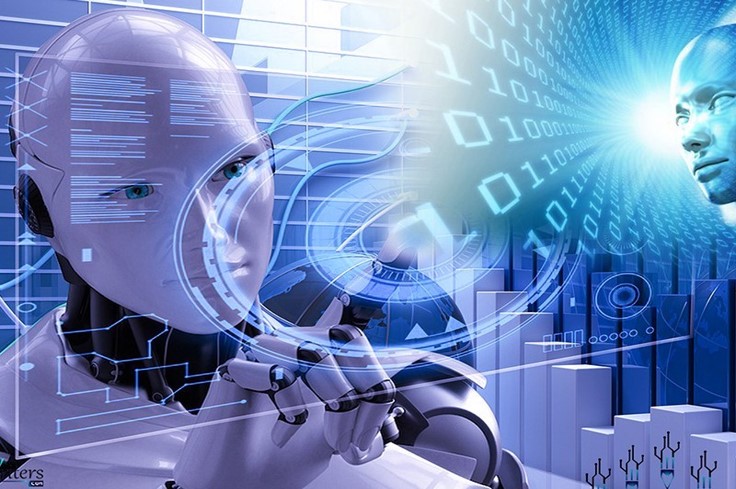Artificial Intelligence the Next key in the Banking Transformation.
By Arturo Alejandro Canseco,
Legal & fintech associate at Ramos Ripoll Schuster firm
Payments – Fintech Foreign Advisor at Etisalat, Mexico
Artificial intelligence has represented a drastic change in the evolution of the technological revolution, reaching many industrial sectors, but to date it continues to be an enigma for many people, since on many occasions we would only associate it with humanoids and robots that simply evoke our most creative thoughts, the product of fiction. However, there is a network of business solutions that are changing the way of doing business, including banking.
“Artificial Intelligence refers to the simulation of human intelligence in machines that have been programmed to think like humans and carry out activities similar to these.”—Gordon Scott
Understanding Artificial Intelligence
When most of us hear the term Artificial Intelligence, the first thing we think about is robots, that’s because the big budgets and the fascinating work of the producers of TV series, novels have shared with us from their commercial vision but nothing further than reality.
With the advance of technology and the advance of artificial intelligence we find an endless number of benefits in any industry, machines that are really used in a multidisciplinary environment, artificial intelligence is an example of what a technological tool represents especially in the financial sector.
In 1987 Warren Buffett the biggest investor of all time wrote in his letter to his shareholders in Berkshire Hathaway
“In my opinion the success of investments will not be produced by the formula sand, it will be the computer programs that anticipate market price signals according to the behavior of stocks and market.”—Berkshire Hathaway
30 years later that prediction became a reality since the year 2016 Aidyia, a fund investment company located in Honk Kong has based its investments on algorithms is totally incredible that company is fully automated without the help of any human intervention.
Marvin Minsky, one of the founders in the field of Artificial Intelligence, defines it as
“The science of getting machines to do things that require human intelligence to do them” (Minsky, 1968), There are no surprises that banks are adopting Artificial Intelligence in an infinite number of ways, big banks in particular are being leaders in the race that I call the “Banking Technologies Sprint Marathon”—Marvin Minsky
Most banks are entering a fast race for the adoption of different technologies, IA, Blockchain, Big Data however the fact of wanting to implement new technologies does not mean that they will generate added value in the short term.Banks need to continue to innovate in order to offer better services to their consumers one of the ways to do this is with the use of Artificial Intelligence they need digital systems that allow a variety of different things also to improve the experience of each client.
Banks see Artificial Intelligence as a way to help and provide a hyper-customization of services offered by automatic monitoring also improving back office operations.
Different types of Artificial Intelligence.
According to the international consulting firm Deloitte in an article: “Intelligent Automation in the Business World” widely makes the very successful segmentation of the types of artificial intelligence
- Machine learning
Refers to the computer system where the performance of a task or activity improves through experience and exposure to added information, the key element here is that the machine represents the ability to perform the activity and improve without the need to follow any instruction.
Some examples of applications in the financial sector include fraud prediction or trading recognition.
- Autonomics
Autonomics refers to a system that is capable of not only learning to identify new patterns of information with a data store but also to perform tasks or activities with a human being.
The systems here are not only capable of recognizing an incident or a pattern of incidents but can also be implemented in the routine to resolve such an incident.
Some examples therefore are the problem of some software in the execution of a credit risk analysis.
- Machine Vision
Refers to the ability of a computer to recognize and identify objects, subjects, activities in images, this machine may be able to classify undefined objects as something the computer recognizes. This may be the recognition of a user’s approval of some asset.
- Natural Language Processing
This is where the computer is able to process and interpret human language and respond appropriately.
Banks are pioneers in automating their compliance processes and in the case of large volume document searches, artificial intelligence can be very useful. Improved search capabilities can allow compliance officers to find relevant information among thousands of digital documents quickly.
Computers with artificial intelligence are capable of making decisions faster than any human it can be a great tool when it involves large volumes of data.
Regulatory challenges of Artificial Intelligence
Artificial intelligence can be excellent in improving processes but just as AI brings us benefits it brings with its responsibilities, the use of AI technology is a new challenge for the regulatory authorities
Conclusion
Artificial intelligence has the potential to change the way business is done around all sectors in the economy, and finance is at the forefront of this exciting change.The adoption of artificial intelligence in the financial sector is constantly changing, providing a better personalized customer experience, and increasing the opportunity for further growth in this modern economy.
- METAVERSE - February 4, 2022
- Banking as a Service and BaaP - May 19, 2021
- The Tokenomics phenomenon - April 19, 2021


Stay connected